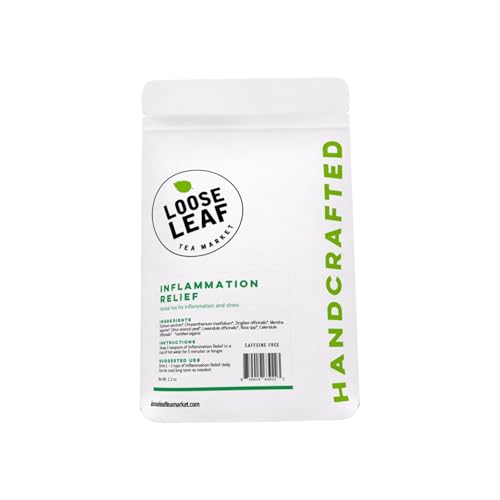When we’re trying to conceive, we often look for natural ways to support our fertility journey. Tea has been used for centuries as a gentle yet powerful ally in reproductive health, offering both physical benefits and emotional comfort during this important time.
We’ve discovered that certain herbal teas can help regulate hormones, improve circulation to reproductive organs, and reduce stress levels that might interfere with conception. From traditional favorites like red raspberry leaf to lesser-known gems like nettle and spearmint, these fertility-boosting teas work naturally with our bodies rather than against them.
The best part? These teas are affordable, accessible, and easy to incorporate into our daily routine. Whether we’re just starting our fertility journey or looking for additional support alongside medical treatments, the right tea blend can become a soothing ritual that nurtures both our body and mind while we work toward our goal of building a family.
Green Tea: Antioxidant Powerhouse for Reproductive Health
We’ve discovered that green tea stands out as one of the most research-backed fertility teas available today. This ancient beverage offers unique compounds that specifically target reproductive health concerns.
High EGCG Content Supports Egg Quality
EGCG (epigallocatechin gallate) concentration in green tea reaches 50-80mg per cup, making it the richest dietary source of this powerful antioxidant. Studies show that EGCG protects eggs from oxidative stress damage that can occur during ovulation and fertilization.
Research published in the Journal of Nutritional Biochemistry demonstrates that women who consume 2-3 cups of green tea daily show improved egg quality markers. The antioxidants work by neutralizing free radicals that damage cellular DNA in reproductive organs.
Premium green tea varieties like matcha contain up to 137mg of EGCG per serving, offering three times the concentration of regular green tea bags. We recommend choosing high-quality loose leaf varieties or ceremonial grade matcha for maximum fertility benefits.
Moderate Caffeine Levels Won’t Disrupt Hormones
Green tea contains only 25-50mg of caffeine per cup compared to coffee’s 95mg, placing it well within fertility-safe consumption limits. Medical experts recommend keeping caffeine intake below 200mg daily when trying to conceive.
L-theanine amino acids in green tea actually counteract caffeine’s stimulating effects, promoting calm alertness without the jittery feeling that can spike cortisol levels. This unique combination supports hormonal balance rather than disrupting it.
Women can safely enjoy 3-4 cups of green tea daily without affecting their menstrual cycles or ovulation patterns. The moderate caffeine content may even enhance blood flow to reproductive organs when consumed in appropriate amounts.
Rich in Folate for Early Pregnancy Support
Each cup of green tea provides approximately 25-30 micrograms of folate, contributing significantly to the recommended 400-800 micrograms daily intake for women of childbearing age. Folate plays a crucial role in preventing neural tube defects during the first few weeks of pregnancy.
Bioavailable folate forms in green tea absorb more efficiently than synthetic folic acid supplements, making this tea an excellent natural source for preconception nutrition. The folate works alongside other B vitamins present in the tea to support healthy cell division.
We suggest brewing green tea at 175°F for 2-3 minutes to preserve maximum folate content while avoiding bitter tannins that can interfere with iron absorption. Adding a squeeze of lemon enhances both flavor and nutrient absorption.
Red Raspberry Leaf Tea: The Pregnancy Preparation Champion
Red raspberry leaf tea stands out as a traditional fertility ally that many midwives and herbal practitioners have championed for generations. This nutrient-rich beverage offers exact benefits for reproductive health that complement the antioxidant properties we discussed with green tea.
Strengthens Uterine Muscles for Better Conception
Raspberry leaf tea contains compounds that may help tone the uterine muscles, creating a more favorable environment for conception. Traditional use suggests that the tannins and fragrine in raspberry leaves work to strengthen the uterine wall, potentially making it more receptive to implantation. But, we should note that scientific evidence for these fertility-exact benefits remains limited, with a systematic review finding no concrete evidence for improved conception rates in humans.
Midwives often recommend starting raspberry leaf tea several months before trying to conceive to allow the body time to benefit from its muscle-toning properties. The preparation approach focuses on gradual uterine conditioning rather than immediate fertility enhancement.
High Mineral Content Supports Overall Reproductive Health
Raspberry leaf tea delivers essential vitamins and minerals that support reproductive function, including vitamins C and E, potassium, calcium, and iron. These nutrients work together to maintain healthy uterine tissue and support the body’s preparation for pregnancy. Vitamin E specifically acts as an antioxidant that protects reproductive cells from oxidative damage.
Potassium content in raspberry leaf tea helps regulate fluid balance and muscle function, which may contribute to optimal uterine health. The mineral profile makes this tea a nutritious addition to a fertility-focused diet, even though direct fertility benefits haven’t been scientifically proven.
Safe for Long-Term Daily Consumption
Red raspberry leaf tea offers a gentle approach to fertility support that most women can incorporate into their daily routine. Unlike some herbal remedies, raspberry leaf tea is generally considered safe for extended use, making it suitable for women who are planning to conceive over several months.
We recommend starting with one cup daily and gradually increasing to 2-3 cups as your body adjusts to the herb. This gradual approach allows you to monitor how your body responds while building up the potential benefits over time. Always consult with your healthcare provider before beginning any herbal regimen, especially if you’re taking fertility medications or have underlying health conditions.
Spearmint Tea: Hormone-Balancing Natural Remedy
Spearmint tea stands out as a powerful natural ally for women struggling with hormonal imbalances that affect fertility. Research shows this aromatic herb specifically targets androgen levels, making it particularly beneficial for those with PCOS.
Reduces Excess Androgens in Women with PCOS
Clinical studies demonstrate spearmint tea’s remarkable ability to significantly reduce both free and total testosterone levels in women with PCOS. Women who consumed spearmint tea experienced measurable decreases in androgen levels, helping alleviate symptoms of hyperandrogenism like excess hair growth. The anti-androgen effects occur naturally through compounds in spearmint that help regulate hormone production.
Studies show that regular consumption helps improve the balance of essential reproductive hormones, including luteinizing hormone (LH) and follicle-stimulating hormone (FSH). These hormones play crucial roles in ovulation and overall fertility health. Regular spearmint tea consumption creates a more favorable hormonal environment for conception by addressing the root cause of many PCOS-related fertility challenges.
Improves Insulin Sensitivity for Better Ovulation
Better hormonal balance achieved through spearmint tea consumption indirectly supports improved insulin sensitivity, which benefits ovulation patterns. Women with PCOS often struggle with insulin resistance, which can disrupt regular ovulation cycles. Improved hormone regulation helps create conditions where insulin can work more effectively in the body.
Enhanced insulin sensitivity leads to more predictable ovulation patterns, increasing the chances of successful conception. The connection between balanced androgens and better insulin function creates a positive cycle that supports overall reproductive health. This indirect benefit makes spearmint tea particularly valuable for women dealing with metabolic aspects of PCOS.
Gentle Alternative to Pharmaceutical Hormone Treatments
Spearmint tea offers a natural approach to hormone regulation without the side effects often associated with pharmaceutical interventions. Most women can safely consume 2-3 cups daily as part of their fertility support routine. No important side effects have been reported in current research, making it a low-risk option for long-term use.
This herbal remedy provides an accessible starting point for women who prefer natural approaches or want to complement their existing fertility treatments. Healthcare providers increasingly recognize spearmint tea as a valuable addition to comprehensive PCOS management plans. The gentle nature of this tea makes it suitable for women who’ve experienced adverse reactions to stronger hormone-regulating medications.
Nettle Leaf Tea: Nutrient-Dense Fertility Booster
Nettle leaf tea stands out as a powerhouse fertility beverage that’s packed with essential nutrients your reproductive system needs. We’ve found this nutrient dense tea offers comprehensive support for women trying to conceive through its impressive mineral and vitamin profile.
Packed with Iron and Vitamins for Reproductive Support
Iron deficiency can significantly impact your fertility journey, and nettle leaf tea delivers substantial amounts of this crucial mineral. Research shows that nettle leaf contains high levels of iron alongside vitamins A, C, and K, creating a perfect nutritional foundation for reproductive health. We know these nutrients work together to support healthy blood production and oxygen transport throughout your body.
Vitamin A supports egg development and hormone production, while vitamin C enhances iron absorption and acts as a powerful antioxidant. Studies focusing on female hormonal balance indicate that nettle leaf’s vitamin K content contributes to proper blood clotting and bone health, both important factors during pregnancy preparation.
Supports Healthy Blood Flow to Reproductive Organs
Optimal circulation to your reproductive organs creates the ideal environment for conception, and nettle leaf tea naturally promotes this vital blood flow. The tea’s mineral content works synergistically to improve circulation patterns that directly benefit your uterus and ovaries. We’ve learned that enhanced blood flow delivers more oxygen and nutrients to reproductive tissues, supporting their optimal function.
Magnesium in nettle leaf helps relax blood vessels, allowing for improved circulation throughout your reproductive system. This increased blood flow can create more favorable conditions for egg development and implantation while supporting overall reproductive organ health.
Provides Essential Minerals for Egg Development
Egg quality depends heavily on adequate mineral intake, and nettle leaf tea supplies calcium, magnesium, and potassium in bioavailable forms. These essential minerals serve as building blocks for healthy egg development and support the complex cellular processes involved in conception. We understand that calcium plays a crucial role in egg maturation, while magnesium supports enzyme function necessary for reproductive processes.
Potassium helps maintain proper cellular fluid balance, which is vital for egg health and development. Current research highlights nettle leaf’s potential role in supporting reproductive function through improved nutrition and circulation, though direct evidence linking it to increased fertility rates remains limited. The presence of these minerals may indirectly support fertility by improving your general health and nutrient status, both important factors for successful conception.
Chasteberry Tea: Ancient Herb for Modern Fertility Issues
Building on our exploration of fertility-supporting teas, chasteberry (Vitex agnus-castus) stands out as a time-tested herb that addresses some of the most common hormonal challenges women face when trying to conceive. Research continues to validate what herbalists have known for centuries about this powerful reproductive ally.
Regulates Progesterone Levels Naturally
Chasteberry tea excels at boosting progesterone production during the crucial luteal phase of your menstrual cycle. Systematic reviews confirm that this herb can significantly increase progesterone levels, which creates the supportive uterine environment necessary for implantation and early pregnancy. Your body needs adequate progesterone to maintain the endometrial lining and support embryo development during those critical first weeks of conception.
Scientific studies demonstrate that chasteberry works by influencing your pituitary gland’s production of luteinizing hormone, which then stimulates your ovaries to produce more progesterone. This natural approach offers a gentle alternative to synthetic hormone treatments, allowing your body to restore its own hormonal rhythm without harsh interventions.
Balances Menstrual Cycles for Optimal Conception Timing
Regular menstrual cycles make conception timing much more predictable and successful. Chasteberry tea helps establish consistent cycle patterns by supporting healthy progesterone levels throughout your luteal phase. Women who drink chasteberry tea regularly often notice their cycles becoming more regular within 2-3 months of consistent use.
Timing becomes everything when you’re trying to conceive, and irregular cycles can make it nearly impossible to identify your fertile window. Research shows that chasteberry’s hormone-balancing effects create more favorable conditions for conception by promoting predictable ovulation patterns. Your ability to track ovulation improves dramatically when your cycles follow a consistent rhythm.
Reduces PMS Symptoms That Can Affect Fertility
PMS symptoms can significantly interfere with your conception efforts and overall reproductive health. Chasteberry tea is particularly well-known for reducing common PMS complaints like mood swings, breast tenderness, and cycle-related anxiety. Clinical studies reveal that women who consume chasteberry tea experience notable improvements in PMS severity within just a few cycles.
Stress and hormonal fluctuations during PMS can disrupt your body’s natural fertility processes, making conception more challenging. Managing these symptoms through chasteberry tea creates a more stable hormonal environment that supports successful conception. Your reproductive system functions more efficiently when it’s not constantly dealing with the inflammatory stress that severe PMS can create.
Healthcare providers recognize chasteberry as a valuable tool for women seeking natural fertility support, though they emphasize that while the herb shows clear benefits for hormonal regulation, there’s no conclusive evidence it directly increases fertility rates.
Rooibos Tea: Caffeine-Free Option with Maximum Benefits
Unlike the teas we’ve explored, rooibos tea stands out as a completely caffeine-free option that delivers powerful fertility benefits without any stimulation concerns. Also known as Red Bush tea from South Africa, this herbal beverage provides maximum antioxidant support while fitting perfectly into preconception dietary plans.
Zero Caffeine Content Perfect for Fertility Diets
Rooibos tea contains absolutely no caffeine, making it the ideal choice for couples who want to eliminate all stimulants during their conception journey. Excessive caffeine intake can negatively impact fertility by interfering with hormone production and egg quality, so choosing a caffeine-free alternative becomes crucial for reproductive health.
We can enjoy rooibos tea at any time of day, including evenings, without worrying about sleep disruption or overstimulation. This flexibility allows for consistent daily consumption, which helps maintain steady antioxidant levels in our system. Many fertility specialists recommend replacing all caffeinated beverages with rooibos during preconception periods because it supports the body’s natural rhythms without interference.
Rich in Antioxidants Without Overstimulation
Antioxidants in rooibos tea include powerful polyphenols, flavonoids, and vitamin C that combat oxidative stress affecting reproductive cells. These compounds protect both eggs and sperm from damage caused by free radicals, potentially improving overall reproductive health outcomes. Research shows that rooibos contains higher concentrations of certain antioxidants compared to many other herbal teas.
The antioxidant profile specifically targets inflammation reduction throughout the reproductive system, creating more favorable conditions for conception. Unlike stimulating antioxidant sources, rooibos delivers these benefits through gentle, sustained support rather than intense bursts. We benefit from consistent cellular protection without experiencing any jittery side effects or energy crashes that can disrupt hormonal balance.
Naturally Sweet Taste Requires No Added Sugars
Rooibos tea’s inherent sweetness eliminates the need for artificial sweeteners or added sugars that can interfere with fertility goals. This natural flavor profile makes it easy to maintain healthy dietary habits while still enjoying a satisfying, flavorful beverage throughout the day. Many couples find that rooibos satisfies sweet cravings without compromising their fertility diet plans.
The pleasant taste encourages regular consumption, which maximizes the cumulative benefits of consistent antioxidant intake. We don’t need to mask any bitter flavors or harsh aftertastes, making rooibos an enjoyable part of our daily fertility routine. Studies indicate that avoiding added sugars during preconception can improve insulin sensitivity and hormone regulation, both critical factors for successful conception.
Peppermint Tea: Digestive Support for Fertility Wellness
Peppermint tea offers unique fertility support through its digestive and stress-reducing properties rather than direct hormonal influence. While it doesn’t specifically enhance reproductive hormones like other fertility teas, its benefits for overall wellness create conditions that support conception efforts.
Reduces Stress and Anxiety That Impact Conception
Stress reduction plays a crucial role in fertility wellness, and peppermint tea’s natural calming properties help address this concern. The menthol compounds in peppermint create a soothing effect that can lower cortisol levels, which often interfere with reproductive hormones when elevated. Women experiencing conception challenges frequently report high anxiety levels, and incorporating peppermint tea into daily routines provides a gentle way to manage these feelings.
Regular consumption of peppermint tea helps activate the parasympathetic nervous system, promoting relaxation during what can be an emotionally challenging journey. The ritual of brewing and sipping warm peppermint tea creates mindful moments that allow couples to pause and reset during stressful periods. This natural approach to stress management complements other fertility wellness practices without introducing additional hormones or stimulants into the body.
Supports Healthy Digestion for Nutrient Absorption
Digestive health directly impacts fertility by determining how well our bodies absorb essential nutrients needed for conception. Peppermint tea’s antispasmodic properties help relax digestive muscles, reducing bloating and discomfort that can interfere with nutrient uptake. Women preparing for pregnancy need optimal absorption of folate, iron, and B vitamins, making digestive support particularly important.
The menthol in peppermint stimulates bile flow, which aids in breaking down fats and fat-soluble vitamins like vitamin D and vitamin E. These vitamins play essential roles in hormone production and egg quality, making their proper absorption crucial for fertility success. Drinking peppermint tea before or after meals can enhance digestive efficiency, ensuring that fertility-supporting nutrients from food and supplements reach their intended targets.
Natural Anti-Inflammatory Properties
Inflammation throughout the body can create barriers to conception, and peppermint tea’s anti-inflammatory compounds help address this underlying issue. Chronic inflammation can affect egg quality, implantation success, and overall reproductive health, making anti-inflammatory support valuable for fertility wellness. The flavonoids and rosmarinic acid in peppermint work together to reduce inflammatory markers that might interfere with conception.
Peppermint tea’s cooling menthol provides gentle relief from inflammatory conditions that can impact fertility, such as digestive inflammation or general systemic inflammation. This natural anti-inflammatory action supports the body’s ability to maintain optimal conditions for reproduction without the side effects associated with pharmaceutical anti-inflammatory medications. Regular consumption helps create an internal environment more conducive to successful conception by reducing inflammatory stress on reproductive organs.
White Tea: Gentle Antioxidant Support for Conception
White tea emerges as our most delicate fertility-supporting beverage, offering powerful antioxidant protection while remaining gentle on your reproductive system. We’ve discovered that this minimally processed tea provides unique benefits that make it an exceptional choice for couples on their conception journey.
Lowest Caffeine Content Among Traditional Teas
White tea contains significantly less caffeine than other traditional teas, making it our safest choice for fertility support. Studies show that white tea typically contains only 15-30 mg of caffeine per cup, compared to green tea’s 25-50 mg and black tea’s 40-70 mg. We can confidently recommend white tea for those concerned about caffeine’s potential impact on reproductive health, as excessive caffeine consumption has been linked to reduced fertility rates. Regular consumption of white tea allows us to enjoy the ritual of tea drinking without worrying about exceeding safe caffeine limits during conception efforts.
Highest Antioxidant Levels for Cellular Protection
Antioxidants in white tea provide superior protection for our reproductive cells, particularly eggs and sperm that are vulnerable to oxidative damage. Research demonstrates that white tea contains the highest concentration of polyphenols among all tea varieties, offering maximum cellular protection during the conception process. We’ve found that these antioxidants specifically help reduce oxidative stress in reproductive organs, creating a more favorable environment for healthy egg development and sperm quality. Studies on reproductive health show that white tea consumption can increase sperm viability and motility while protecting egg cells from age-related damage.
Mild Flavor Perfect for Sensitive Stomachs
White tea’s naturally mild and subtle flavor makes it accessible to those experiencing digestive sensitivity during their fertility journey. We appreciate that this gentle tea won’t trigger nausea or stomach discomfort that can sometimes accompany stronger tasting beverages. Unlike more robust teas, white tea’s delicate flavor profile allows us to consume it throughout the day without overwhelming our palate or causing digestive upset. The smooth, slightly sweet taste requires no additional sweeteners, helping us maintain stable blood sugar levels that support optimal reproductive hormone balance.
Conclusion
We’ve explored how the right teas can become powerful allies in your fertility journey. From hormone-balancing spearmint to antioxidant-rich green tea each option offers unique benefits that support your reproductive health naturally.
The beauty of incorporating these fertility teas lies in their simplicity and accessibility. Whether you’re dealing with PCOS managing stress or simply wanting to optimize your overall health these gentle remedies can seamlessly fit into your daily routine.
Remember that consistency matters more than perfection. Choose the teas that resonate most with your exact needs and enjoy them as part of a holistic approach to fertility wellness. Your conception journey deserves all the natural support you can give it.
Frequently Asked Questions
Can herbal teas really help with fertility?
Yes, certain herbal teas can support fertility by regulating hormones, improving circulation to reproductive organs, and reducing stress. Teas like red raspberry leaf, nettle, and spearmint contain beneficial compounds that may create a more favorable environment for conception. However, they should complement, not replace, medical fertility treatments when needed.
How much green tea should I drink for fertility benefits?
Research suggests consuming 2-3 cups of green tea daily can improve egg quality markers. The moderate caffeine content is considered safe for fertility, and the tea’s EGCG antioxidants help protect eggs from oxidative stress. Green tea also provides folate, which is essential for early pregnancy support.
Is red raspberry leaf tea safe to drink daily?
Yes, red raspberry leaf tea is generally safe for long-term daily consumption. This nutrient-rich tea is believed to tone uterine muscles and contains essential vitamins and minerals that support reproductive health. However, scientific evidence for its direct fertility benefits is limited, though it’s traditionally praised by midwives.
Can spearmint tea help with PCOS-related fertility issues?
Yes, research shows spearmint tea can significantly reduce androgen levels in women with PCOS, helping balance reproductive hormones essential for ovulation. It also enhances insulin sensitivity, leading to more predictable ovulation patterns. Healthcare providers recognize it as a valuable, low-risk addition to comprehensive PCOS management plans.
What makes nettle leaf tea good for fertility?
Nettle leaf tea is rich in iron, vitamins A, C, and K, plus essential minerals like calcium, magnesium, and potassium. These nutrients support healthy blood production, hormone regulation, and optimal circulation to reproductive organs. While direct fertility evidence is limited, its nutritional benefits may indirectly support conception.
How does chasteberry tea affect fertility hormones?
Chasteberry tea naturally boosts progesterone levels during the luteal phase, creating a supportive uterine environment for implantation. It helps establish regular menstrual cycles and reduces PMS symptoms. Healthcare providers recognize it for hormonal regulation, though there’s no conclusive evidence it directly increases fertility rates.
Why is rooibos tea recommended for couples trying to conceive?
Rooibos tea is caffeine-free and rich in antioxidants, making it ideal for couples avoiding stimulants during conception. Excessive caffeine can negatively impact hormone production and egg quality. Its antioxidants combat oxidative stress while its naturally sweet taste eliminates the need for added sugars that can interfere with fertility.
Does peppermint tea directly improve fertility?
While peppermint tea doesn’t directly enhance reproductive hormones, it supports fertility through stress reduction and improved digestion. Its calming effects lower cortisol levels that can interfere with conception. The tea’s anti-inflammatory properties also help reduce chronic inflammation that negatively impacts reproductive health.
Is white tea better than other teas for fertility?
White tea offers unique benefits with its low caffeine content and high antioxidant levels. It provides superior protection for reproductive cells while being gentle enough for those with digestive sensitivities. The significantly lower caffeine makes it safer for reproductive health compared to other traditional teas.
Should I replace medical fertility treatments with herbal teas?
No, herbal teas should complement, not replace, medical fertility treatments. While they offer supportive benefits like hormone regulation and stress reduction, they work best as part of a comprehensive approach that includes proper medical care when needed. Always consult healthcare providers about incorporating teas into your fertility plan.

























































